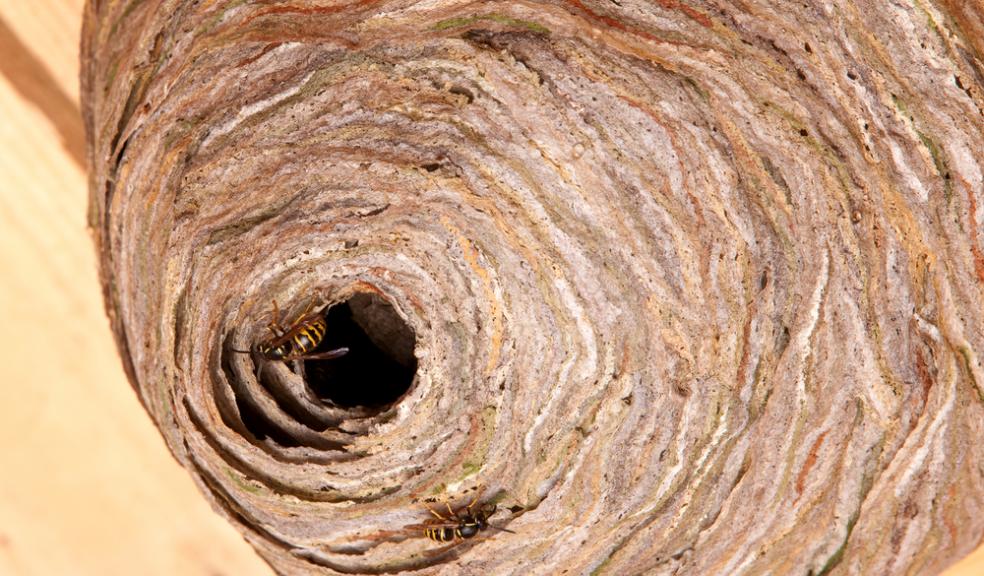
Wasp warning after wet and warm winter
An unused lawn mower, the folded sails of a yacht and an old sofa became foundations for homes built by Plymouth’s most unwelcome guests last year – wasps.
Plymouth’s pest control service treated around 250 nests last year and they warn that the city could see a bumper year for wasps following a mild winter and spring.
Service manager Nicola Horne said: “We are coming into the season where a lot more of us are outside, doing the gardening, or carrying out home improvements.
“Wasps generally hibernate in sheltered places where the queen can build her nest. As this is often in attics, sheds or a sheltered garden area, people can come across them unexpectedly.
“We usually treat about 200 wasps’ nests a year although three years ago following a really cold winter the number dropped to 70 nests. With a mild and dry winter and spring we’ve just had, the signs are that we will get more this year.”
Many wasps’ nests can be left undisturbed, but if the insects become a nuisance or a threat to safety they need to be treated as soon as possible. A wasp sting can be very painful. The wasp injects their venom causing redness and swelling and in some cases, people allergic to wasp stings may suffer an anaphylactic shock.
The Council’s pest control officers can locate the wasps nest and treat it. This is generally done from the ground, although depending on where the nest is, ladders are used.
It is difficult to stop a nest being built, but officers advise making sure your house and sheds are well-maintained. Wasps build their nests bigger and bigger throughout the summer, so it is advisable that they are destroyed as soon as possible.
Plymouth City Council offers a comprehensive pest control service, run by professionals with over 30 years of experience. The pest control service is a member of the Trading Standards approved trader scheme ‘Buy with Confidence’
The council charges £48.50 to come out and treat a wasp or hornets’ nest. Call the Pest Control Service on 01752 304147 or pestcontrol@plymouth.gov.uk.
People sometimes mistake bees for wasps. Bees are highly beneficial to our environment as they pollinate plants and flowers, so bees’ nests are left untreated if possible. If the bee nest is a high risk, contact a professional beekeeper to see if the bees can be removed and relocated to a beehive.
The British Beekeeper Association can be contacted on 0871 811 2282 or 0871 811 2337 or visit www.bbka.org.uk/help/do_you_have_a_swarm.phpPhoto0133 (2)
The Council will only treat a bees’ nest as the last resort if it is considered a serious threat to people and a beekeeper cannot remove the bees. Call the Council’s Pest Control Service on 01752 304147 or pestcontrol@plymouth.gov.uk
Plymouth City Council Pest Control Service can also treat and resolve problems with rats, mice, squirrels, fleas, bedbugs, flies and other insects. They also carry out bird proofing and nest clearances.













